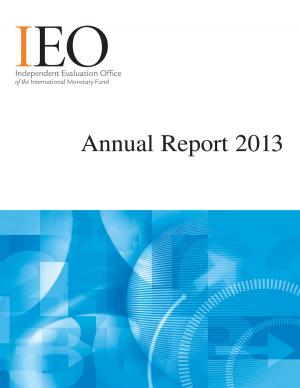Economic Gains From Gender Inclusion
New Mechanisms, New Evidence
Business & Finance, Economics, Money & Monetary Policy, Macroeconomics| Author: | Jonathan David Ostry, Jorge Alvarez, Raphael A Espinoza, Chris Papageorgiou | ISBN: | 9781484379721 |
| Publisher: | INTERNATIONAL MONETARY FUND | Publication: | October 9, 2018 |
| Imprint: | Language: | English |
| Author: | Jonathan David Ostry, Jorge Alvarez, Raphael A Espinoza, Chris Papageorgiou |
| ISBN: | 9781484379721 |
| Publisher: | INTERNATIONAL MONETARY FUND |
| Publication: | October 9, 2018 |
| Imprint: | |
| Language: | English |
While progress has been made in increasing female labor force participation (FLFP) in the last 20 years, large gaps remain. The latest Fund research shows that improving gender diversity can result in larger economic gains than previously thought. Indeed, gender diversity brings benefits all its own. Women bring new skills to the workplace. This may reflect social norms and their impact on upbringing and social interactions, or underlying differences in risk preference and response to incentives for example. As such, there is an economic benefit from diversity, that is from bringing women into the labor force, over and above the benefit resulting from more (male) workers. The study finds that male and female labor are imperfect substitutes in production, and therefore gender differences in the labor force matter. The results also imply that standard models, which ignore such differences, understate the favorable impact of gender inclusion on growth, and misattribute to technology a part of growth that is actually caused by women’s participation. The study further suggests that narrowing gender gaps benefits both men and women, because of a boost to male wages from higher FLFP. The paper also examines the role of women in the process of sectoral reallocation from traditional agriculture to services and the resulting effect on productivity and growth. Because FLFP is relatively high in services, sectoral reallocation along development paths serves to boost gender parity and productivity.
While progress has been made in increasing female labor force participation (FLFP) in the last 20 years, large gaps remain. The latest Fund research shows that improving gender diversity can result in larger economic gains than previously thought. Indeed, gender diversity brings benefits all its own. Women bring new skills to the workplace. This may reflect social norms and their impact on upbringing and social interactions, or underlying differences in risk preference and response to incentives for example. As such, there is an economic benefit from diversity, that is from bringing women into the labor force, over and above the benefit resulting from more (male) workers. The study finds that male and female labor are imperfect substitutes in production, and therefore gender differences in the labor force matter. The results also imply that standard models, which ignore such differences, understate the favorable impact of gender inclusion on growth, and misattribute to technology a part of growth that is actually caused by women’s participation. The study further suggests that narrowing gender gaps benefits both men and women, because of a boost to male wages from higher FLFP. The paper also examines the role of women in the process of sectoral reallocation from traditional agriculture to services and the resulting effect on productivity and growth. Because FLFP is relatively high in services, sectoral reallocation along development paths serves to boost gender parity and productivity.















